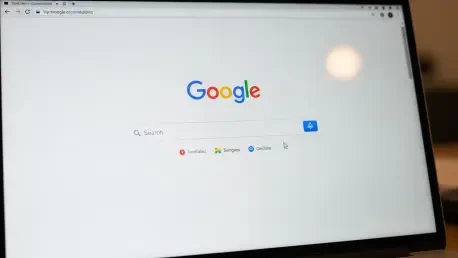In the fast-evolving world of digital marketing and ad-tech, few names carry as much weight as Anastasia Braitsik. As a global leader in SEO, content marketing, and data analytics, Anastasia has spent years dissecting the intricacies of online advertising and the dominance of tech giants in this space. Today, we dive into the European Commission’s recent $3.45 billion fine against Google for anti-competitive ad-tech practices, exploring the implications for businesses, consumers, and the future of digital advertising. Our conversation with Anastasia touches on the specifics of the EU’s accusations, Google’s response, the broader context of antitrust actions, and what this could mean for the industry at large.
Can you walk us through what prompted the European Commission to slap Google with a $3.45 billion fine?
Absolutely. The EU Commission accused Google of abusing its dominant position in the ad-tech market by unfairly favoring its own display advertising technology services over competitors. Essentially, Google was prioritizing its own tools and platforms in ways that stifled competition, which the EU deemed illegal under their antitrust rules. This isn’t just about Google being big; it’s about how they’ve leveraged that size to edge out others in the digital advertising ecosystem.
How does the EU argue that Google’s practices have negatively impacted publishers, advertisers, and consumers?
The EU’s stance is that Google’s behavior creates a ripple effect. For publishers, it limits their ability to monetize content effectively because they’re pushed toward Google’s tools, often at less favorable terms. Advertisers face higher costs and fewer choices since competition is reduced. And for consumers, this can mean higher prices passed down the line, as well as less innovation in the ad space since smaller players can’t compete. It’s a classic case of a dominant player shaping the market to its advantage, leaving everyone else at a disadvantage.
What specific actions has the EU ordered Google to take following this fine?
The EU has been clear: Google needs to stop what they call ‘self-preferencing’ practices, where they give undue advantage to their own services. They’ve also been told to address conflicts of interest in their ad-tech supply chain. Basically, the Commission wants Google to level the playing field and ensure their dominance doesn’t translate into unfair control over the market. They’ve given Google 60 days to respond with a plan to comply.
Can you explain what ‘self-preferencing’ means in this context and why the EU sees it as a problem?
Self-preferencing, in this case, refers to Google prioritizing its own ad-tech tools—like their ad exchange or demand-side platforms—over those of competitors. Imagine if you ran a marketplace and always pushed your own products to the top of the search results, even if others were better or cheaper. The EU sees this as a problem because it undermines fair competition. When Google controls so much of the ad ecosystem, this behavior can lock out other players, reducing choice and innovation in the market.
What are these ‘conflicts of interest’ the EU pointed out in Google’s ad-tech supply chain?
The conflicts of interest stem from Google wearing multiple hats in the ad-tech world. They act as a middleman for both buyers and sellers of ads while also competing with them through their own platforms. It’s like being the referee and a player in the same game. The EU argues this setup allows Google to manipulate outcomes—like pricing or data access—in ways that benefit themselves over others, creating an inherently unfair system.
How has Google responded to this fine and the EU’s directives?
Google has pushed back hard. Their global head of regulatory affairs called the fine ‘unjustified’ and argued that the mandated changes could harm thousands of European businesses by making it tougher for them to generate revenue through ads. They’ve made it clear they disagree with the decision and plan to appeal it, signaling they’re not ready to accept the EU’s ruling without a fight.
Why does Google believe the required changes could hurt European businesses?
Google’s argument is that their integrated ad-tech system, while dominant, creates efficiencies that benefit smaller businesses—especially in terms of cost and ease of use. They claim that breaking up or altering this system, as the EU demands, could disrupt those benefits, making advertising more expensive or less effective for European companies that rely on their tools. It’s a classic defense of scale, suggesting that their size helps more than it harms.
Can you give us some background on the EU’s history with Google regarding antitrust issues?
Sure, this isn’t the first rodeo for Google and the EU. Back in 2018, the European Commission hit Google with a hefty fine for violating antitrust laws, primarily around how it used its Android operating system to cement its search engine dominance. At that time, the EU even floated the idea of ‘mandatory divestment’—forcing Google to sell off parts of its business—as the only way to truly address the issue. It’s a long-standing battle over how much power one company should wield in tech.
Why should the average person or business owner care about this fine and the EU’s actions?
This matters because it could reshape how digital advertising works, which affects nearly every online business and consumer. If Google is forced to change its practices—or in an extreme case, break up parts of its ad-tech business—it could open the door for more competition, potentially lowering costs and spurring innovation. On the flip side, if Google’s right about the risks, businesses that depend on their tools might face higher costs or inefficiencies. Plus, past rulings, like the US monopoly case against Google, show that big fines don’t always lead to big changes, so the real impact is still up in the air.
What’s your forecast for the future of ad-tech regulation and Google’s role in it?
I think we’re at a tipping point. Governments worldwide are waking up to the immense power tech giants like Google hold over digital economies, and ad-tech is just one battleground. My forecast is that we’ll see more aggressive regulation, not just in the EU but globally, pushing for structural changes over mere fines. For Google, this could mean tougher scrutiny and possibly divestitures in the long run, though they’ll fight tooth and nail to maintain their integrated model. The next few years will likely define whether dominance in ad-tech becomes a shared space or remains a walled garden.









